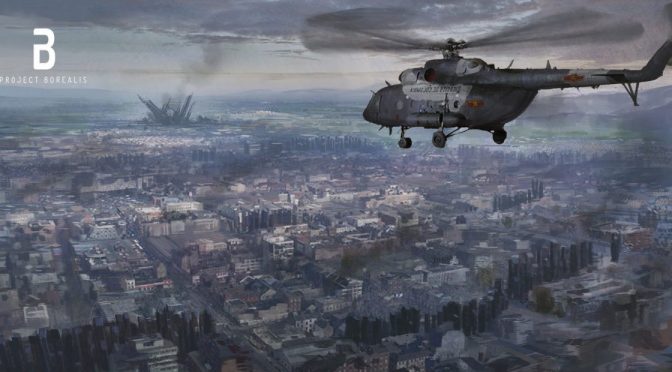The Project Borealis Team – the fan project developing a third Half-Life 2 episode based on the Epistle 3 script published by Half-Life writer Marc Laidlaw – have released their fifth development update. The update features information on the team’s level design process, including a first look at maps from the game, as well as the latest progress on core gameplay.
As the press release reads, the process of developing one of the game’s levels, set in an ice cave, is detailed, alongside a fresh look at the game’s core gameplay. The team highlight the progress made on gameplay, including a deep-dive into the game’s physics and audio technologies, including brand new mechanics.
Project Manager Florian Häsler said:
“This update is the result of a significant evolution in the team over the last year. We refined our development workflows and adopted a new approach to structuring the work ahead of us. This has brought about great work, some of which we’re showcasing in this update; the team is developing some exciting tech, using modern technology to explore our gameplay options. We can’t wait to hear what the community thinks about our progress and direction.”
The team has also unveiled the first gameplay footage, featuring basic AI enemies.
Project Borealis is using Unreal Engine 4 and promises to offer the best Half Life fan game to date, though as you’ll see it’s still in a very early stage. Nevertheless, we are certain that Half Life fans will appreciate so go ahead and take a look!

John is the founder and Editor in Chief at DSOGaming. He is a PC gaming fan and highly supports the modding and indie communities. Before creating DSOGaming, John worked on numerous gaming websites. While he is a die-hard PC gamer, his gaming roots can be found on consoles. John loved – and still does – the 16-bit consoles, and considers SNES to be one of the best consoles. Still, the PC platform won him over consoles. That was mainly due to 3DFX and its iconic dedicated 3D accelerator graphics card, Voodoo 2. John has also written a higher degree thesis on the “The Evolution of PC graphics cards.”
Contact: Email

